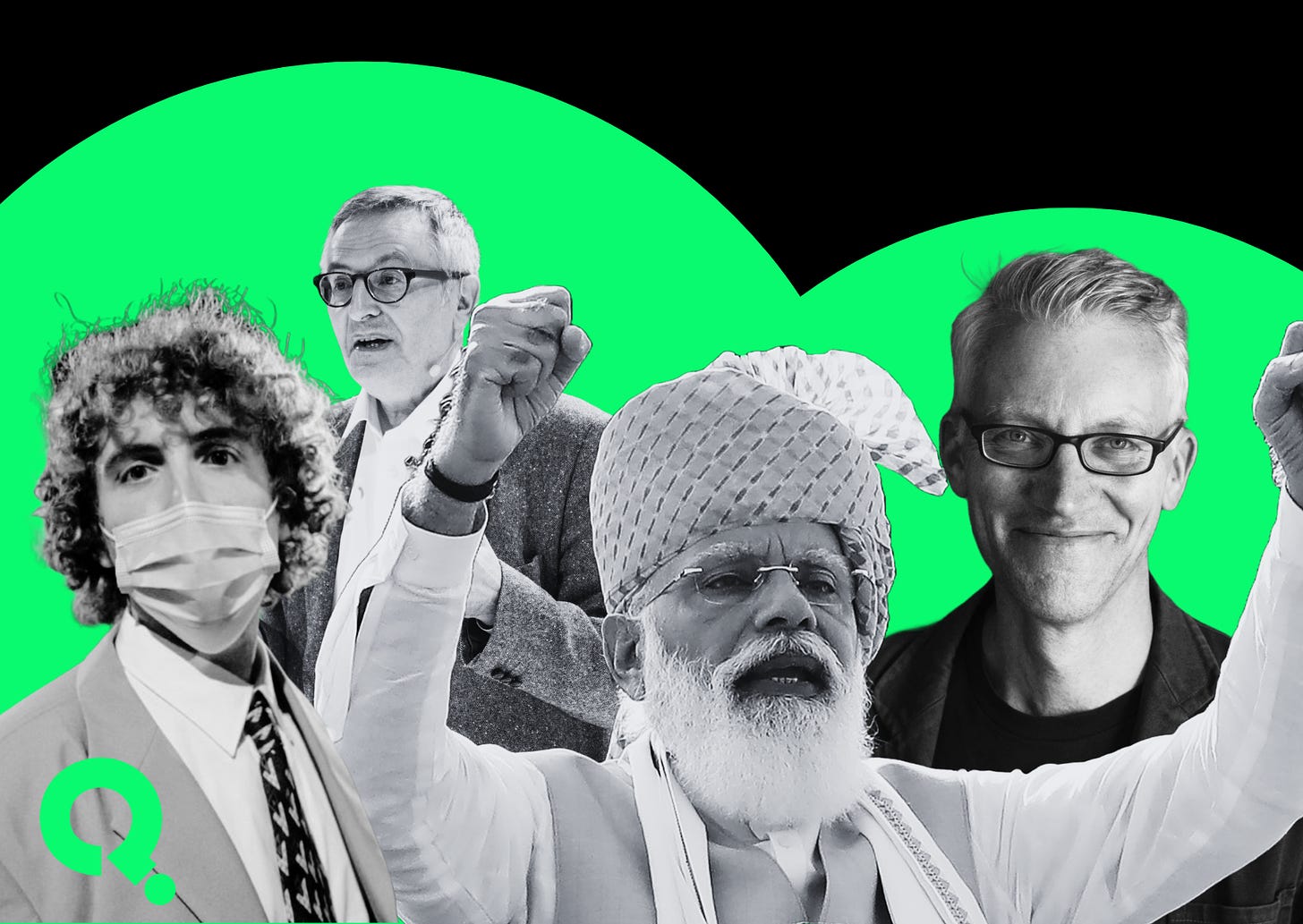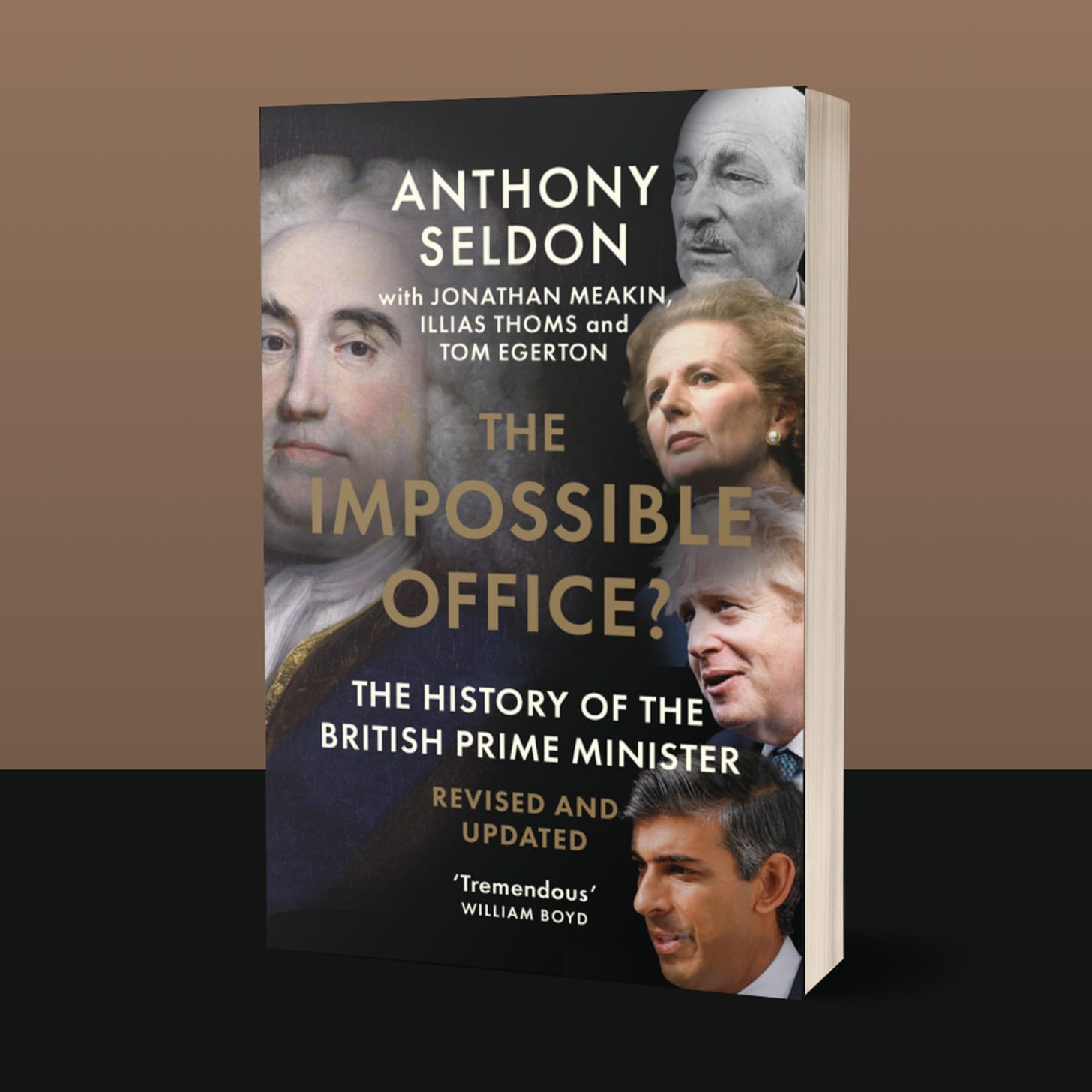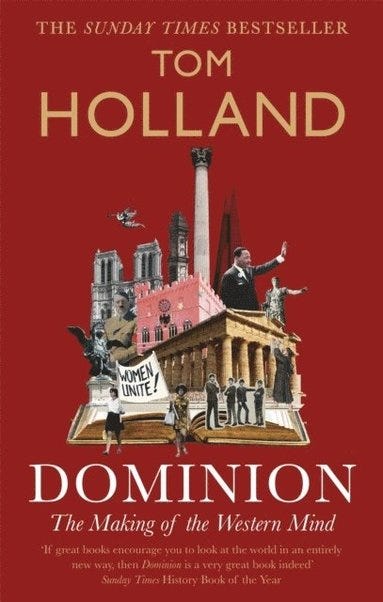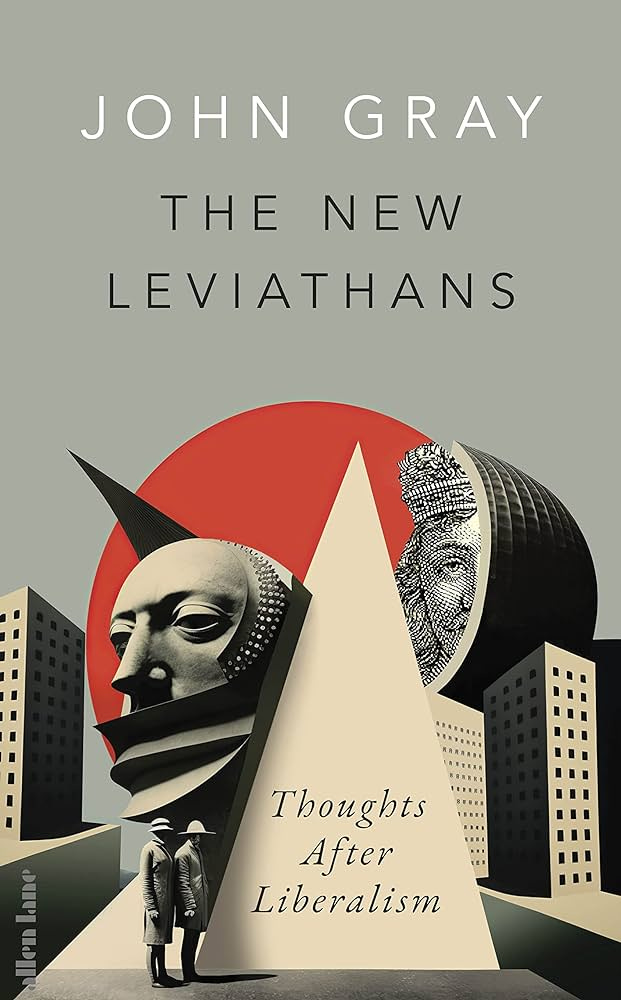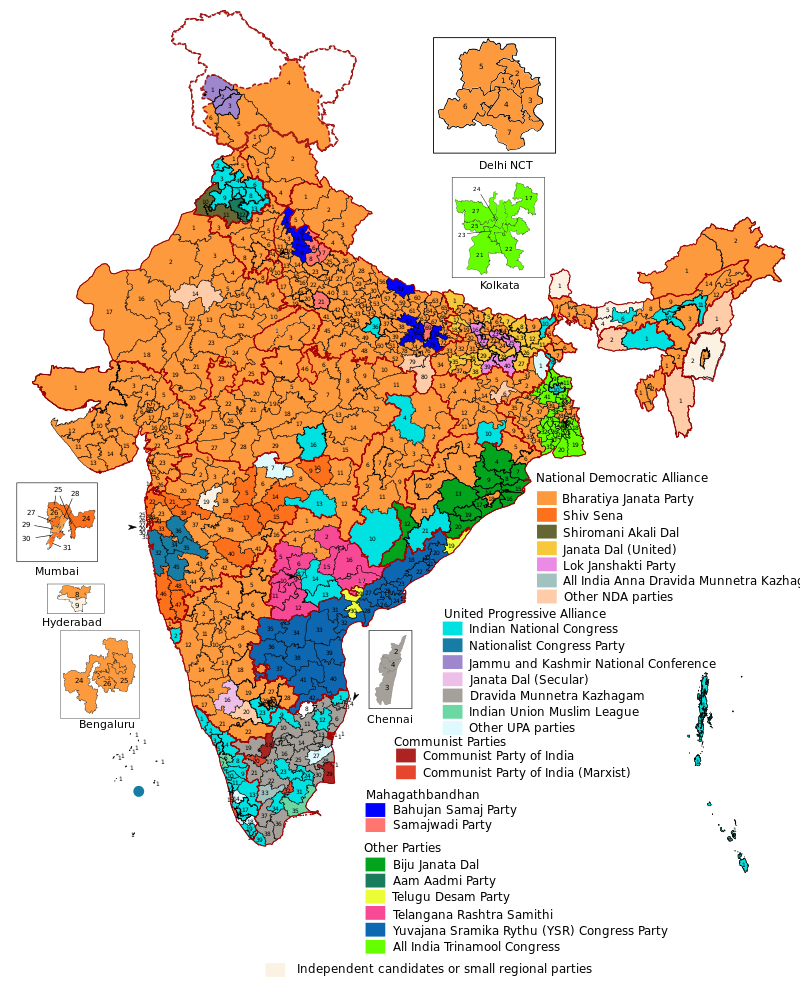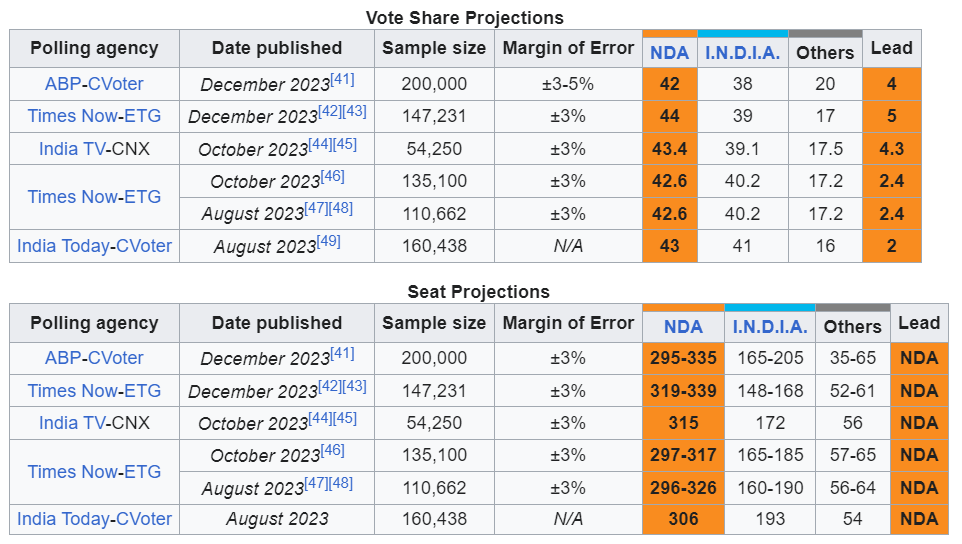Ramblings #3: Updates, Religion in Politics and New Media
Updates and ideas as TPI kicks into gear for 2024
Updates
It's been reasonably quiet on The Political Inquiry for a simple reason: we’re all quite busy. Hopefully as we ease into 2024 you’ll be seeing much more content. The main project I’ve been working on over the past year has been the new history of the prime minister co-authored with Anthony Seldon, called The Impossible Office?. It will be out in March 2024 published by Cambridge and includes our vision of how the office should be upgraded to make it slightly less impossible. I will cover these reforms in a future piece when they have been published – I’m keen not to anticipate the publication in both the book and a think tank report.
You can buy the book from Amazon here, Cambridge here and WHSmiths here.
This year we hope to continue and expand coverage, keeping our emphasis on deep-dives into politics and analysing why things happen, not just what happens. This will continue in my New Consensus Notes series – a wishlist of strategic reforms for Britain centred around security and opportunity. There is a further exciting project I’ve been working on with top academics over the last nine months or so which is close to being publicly announced. Hopefully parts of this project and our thinking behind it can be showcased on TPI nearer publication. More on this later.
Religion in Politics – Part 1
The rest of this rambling will be a short discussion of two issues that have been nagging me, however my thoughts are too incomplete to formulate them into a coherent piece. Instead I’ll just post some ideas and questions here.
Increasingly in what I read around politics, philosophy and history I’ve witnessed more and more discourse surrounding religion's (un)importance and its supposed absence in politics. The idea that religion has disappeared from the political realm is completely incorrect and a highly Anglophile (possibly northern Eurocentric) idea. As the Stormont deal proved this last week, it hasn’t even dissipated from our own union, even if the Alliance Party’s growth would suggest otherwise.
The key ideas which I’ve been following is Tom Holland’s theory of religion and politics – particularly on the left – espoused in his increasingly well-respected (and well-aged) book Dominion. His main argument is that all Western morals and social norms (and thus to an extent progressive politics), originated in the Christian revolution of St Paul: that the weak (poor) are good and should be prioritised in society and that the strong (rich) are morally bad. Out of this revolutionary idea progressive secularism was born – arguably. This is the stuff Nietszche hated – what he called ‘the slave morality’. The joke is that many atheists subscribe to this originally Christian outlook not just out of protection for those who are disadvantaged in society, but also in achieving progress for the weak in politics.
John Gray’s books have recently been focused on the interaction between political and philosophical history and religion's role in it – particularly western secularism which he sees as infected by this similar idea of constant progress. Whether Hegel's World Spirit, Mill’s 19th century Liberalism or Marx’s historical determinism – they all are stuck in this same paradigm of progressivism that has not moved past Christian thought. Morgan Philips’ famous quote that the Labour Party’s origins ‘owes more to Methodism than to Marxism’ certainly rings true with regard to this theory. It's not that progress or change is necessarily bad (though nor is it always necessarily good for Gray), but his main gripe is its attachment to dogmatic / dangerous religion or ideology and the arrogance surrounding those which purport progress as inevitable.
Gray’s recent work, The New Leviathans also centralises on religion’s political interaction with new developments – whether Putin’s Russia (including the Russian military and Orthodox church engravings on their nukes) or the new secular ‘Hyper Liberalism’ (woke in shorthand) as a radicalisation of St Paul’s thought. Anyone interested in Gray’s ideas should first listen to the podcast in which he talks to David Runciman on his theories, and also for those in Holland should listen to his chat with Rory Stewart and Alastair Campbell – even attempting to convince Campbell that he did, in fact, ‘do god stuff.’
Religion in Politics – Part 2
As India has an election this year – the most powerful and important democracy besides the US – I’ve been reading up on their political history. What is striking about the discussions surrounding their politics is its sharp divergence (or more accurately, a continued different historical path) to the West. Narendra Modi’s populism centres almost exclusively on religion and culture. The ideological theory which his Bharatiya Janata Party (BJP) is built on is called ‘Hinduvta’, (‘Hinduness') first purported by Vinayak Damodar Savarkar a century ago. In short it’s a nationalist ideology that sees Indian identity and Hinduism as inseparable – and thus excluding Muslims (a significant minority in India) from Indian nationhood. It is exclusionary populist politics at its extreme – and of a particular religious flavour.
Modi’s recent opening of a Hindu temple to Ram over an old Mosque, which was violently razed by Hindus in 1992, only reinforces the controversial religious nature of Modi’s rule, but also his popularity – a person well-read on this subject informed me that the Indian media were obsessed for weeks with the opening of the temple. The video linked portrays Modi more as a god than a leader, his cult of personality has accelerated to new levels even after his 2014 holograms (yes, he really did campaign with holograms). This populism of the BJP extends to the whole of civil society, with the RSS acting as an educational branch (and at times violent wing). The media, judges and wider political society have also come under increasing attack as the majoritarian rule of Hindu nationalists permeates India. The umbrella of Hindutva only seems to be expanding.
In 2019 Modi’s BJP won 37.3% of the vote and 303 seats (353 in their NDA alliance), managing to gain a majority due to the FPTP nature of India, and its majoritarian split of religion / culture. If the polls are correct this time, Modi’s religious populism is set to return a majority of a similar magnitude. While it's not assured, and the Congress Party of the Ghandis is beginning to organise with the progressive Indian National Developmental Inclusive Alliance (INDIA for short), Modi does seem set for another victory after 10 years in power.
I can’t think of any current Western populists utilising religion so openly and successfully – even Trump’s evangelical Christian appeal and campaigning, while very strong, is not the key mobilising cleavage, with race and education (class) still stronger influences. What many academics are beginning to wonder is whether India, rather than behind Western ‘secular’ political development, is actually downstream of where we are heading – towards a populist (pseudo?) religious majoritarian rule with more violence and even less regard for democracy. As immigration continues to dominate Western politics – and the growth of larger minority religions (especially Islam) as well as the politicised nature of tolerance – there is a terrible gap opening up for similar religion-majoritarian politics in Europe.
New Media
As you know, I’ve always endeavoured to ensure TPI is part of a new media ecosphere designed to offer non-legacy / non-institutional content and analysis. Being outside of those chains of history, opinion and influence offers a sharpness and clarity to coverage. There are no funding questions, nor are there any hidden ‘aims’ to make so and so prime minister, or support a particular policy which a rich owner desires. It is simply our standalone takes and ideas – you can take it or leave it.
So when I see insurgent media succeeding I always try to share it. The person I want to raise is Andrew Callaghan’s ‘Channel 5 News’ YouTube channel. It is a channel that mostly covers American culture, politics and society but from a ground-up nature over long-form documentary style videos. The best piece Callaghan has produced thus far is his deep-dive into the American drug epidemic, interviewing those on the ground whether users, gangs, dealers or medical experts. His research and sourcing goes way beyond the average legacy media’s efforts, while developing wider political-economic theories of how the nation has developed such a potent drug epidemic. It is shocking, but not designed in a pain pornographic way – he is very aware of the ‘meta’ youtube state of those watching others suffer as a type of genre. His self-critique and awareness is refreshing.
Callaghan also has many videos (and a movie) on the January 6th / the Q-Anon movement, which while funny to laugh at, is probably the best insight into these extremist political ideas you will ever get. While I don’t agree with some of his points, at times he certainly seems to have a tilt (though you should always consume media you don’t completely agree with!), it is the quality of reporting that makes it worth watching. His interview style is naturally brilliant and very unique, inserting himself into intriguing and possibly dangerous situations and then rarely even talking – the story centres not on him as interviewer but who he is talking to. It just feels real – and nothing like the legacy media of today. Even if a lot of it is quite hard-going due to the topics he covers, I implore everyone to try Channel 5 out.
Next Steps
Thanks for reading. As we begin a new stream of content it would be great if you could share, like and recommend our pieces with people who may find it interesting. Again, if you have an interest and skill for political writing, please email me, I’m always looking for intriguing ideas and people for TPI.
If you enjoyed the piece, a free subscription, like and share goes a long way. Thank you.
Tom Egerton is a political writer and researcher, his upcoming book ‘The Impossible Office?: the history of the prime minister’ is out in March 2024, published by CUP and co-authored with Anthony Seldon. Follow Tom on X / Twitter here and email him at tom.egerton.003@gmail.com.





